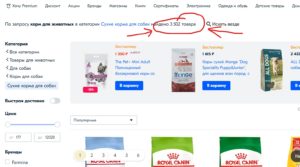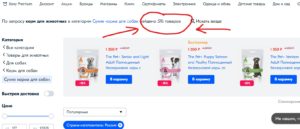I would not have noticed this news unless my good friend Bertrand, who produces pet food, had drawn my attention to it. But this is quite interesting and important news for companies that produce animal pet food and supply or want to supply their products to the Russian market.
At the end of February 2020 (1.5 months before the start of the coronavirus epidemic in Russia), Russia special state bodies (Rosselkhoznadzor)introduced a ban on import of pet food from three foreign companies:
1. Vitkrafrt Pet Care (Germany),
2. Perfect Companion Group (Thailand)
3. Dajana Pet (Czech Republic).
In the document prohibiting the supply of these pet foods, one of the reasons was “the presence of GMO components that were not indicated on the label, or the presence of illegal GMO components, or amounts of GMO components that are beyond acceptable limits”.
For many foreign companies, the presence of GMO products in pet food is not a problem. But in Russia, GMOs are banned even for humans food. In my new book “Your First 50 Right Steps to Enter the Russian Food Market” I dedicated a separate chapter to food with GMOs.
Let’s take a closer look at why pet food from these three companies was banned:
1. The presence of components with GMOs such as soybeans with GMOs. By the way, in Russia it is forbidden to grow GMO soybeans, so all soybeans in Russia are natural. Do you know who buys 90% of the soybean crop in Russia? China! People in China do not want to eat soybeans grown in China but prefer natural ones from Russia.
2. Presence of bone meal from animals which were fed with GMO feed. Laboratories located on the Russian border could identify such components.
3. The main violation was none of the three companies had GMO components indicated on the label. In Russia, this is a profoundly serious violation.
History of the issue
After I studied the information on the ban of import of products from these three companies, I decided to find out the history of this ban on import of pet food from GMOs. And very quickly I found the following information:
In 2019, for the same reasons (GMOs within composition), import of pet food from some other companies was prohibited:
1) Bosch Tiernahrung – Bosch и Bosch Sanabelle, Dr. Clauder;
2) EreBon Co – Natural Core
In 2018, due to the same reasons of GMO presence in the composition the following companies were banned for the import of pet food:
1) Interquell GmbH (Happy Dog и Happy Cat)
2) Monge (Monge, Lechat, Gemon, Simba, Special Dog/Cat , Grandorf)
3) PLB International – 1’st Choice, Pronature (Holistic, Original, Life).
Therefore, if you think that this issue of banning your company’s products import to Russia due to GMOs will be resolved, you are mistaken. Russia has long been fighting with food and pet food containing GMOs.
What can you do?
So, what can be the options if you are a foreign company and produce pet food that includes GMO components and you either supply or plan to supply your products to the Russian market? As an expert in Russian food industry, I can say you have two options:
1) Change the recipe and remove all GMO products from the composition. Then you can deliver you pet food not only to Russia, but to all other countries of the Customs Union (Kazakhstan, Belarus, Armenia, Kyrgyzstan) without restrictions.
2) Start producing your pet food in Russia. Now there are many factories that are ready to manufacture different food products for your brand. You will just need to provide a recipe and ensure quality control (if you want). Then your products will be “made in Russia” and will not have any bans or restrictions. Again, by manufacturing your products in Russia, you will be able to supply to all countries of the Customs Union without customs tariffs.
Well-known foreign pet food companies import their food in barrels and bags and pack it in Russia. There are special companies that provide such services. According to legal documents, such pet food will also be considered “made in Russia”, therefore, it will be cheaper in terms of customs duties and, as a product “made in Russia”, such pet food will be completely safe from possible sanctions, bans or embargoes.
After I studied the issue of bans on import of pet food with GMO ingredients, I remembered the story that happened in 2009. Russia introduced a ban on import of Pedigree and Whiskas. There was another reason (no GMO), but these pet food brands were banned for import into Russia.
Mars company (who own the brands “Pedigree” and “Whiskas”) opened their factory in Russia, took Russian raw materials, used their own recipes. Now their pet food is probably the most popular in Russia. It can be bought in 90% of all food stores in Russia.
One more trick
It is important to remember that if your company food products (pet food) were banned for import into Russia, it means that this ban applies to a specific plant in a particular country, but not to your brand as a whole. Therefore, if your food products ware banned for import into Russia, but your company has factories producing the same products (under the same brand) in another country, you can just continue to supply from other plants.
Of course, this is bad advice if GMO raw materials are also used at those other plants, sooner or later these products will also be banned. This is only a temporary measure that will allow you to fulfill your contract obligations with your clients in Russia. If you want to work on the Russian food market for a long time and profitably, just remove GMOs ingredients and everything will be fine.
Why to enter the Russian market?
Many of you might have thought why to supply to Russia if there are such difficulties. Well, in Russia there are almost no production facilities that specialize only in pet food. For many years pet food in Russian has been produced by meat processing plants, fish processing plants, etc. Pet food production was just a way of processing waste. All over the world, on the contrary,most pet food companies specialize only in pet food. Therefore, foreign companies have achieved such excellence in their products.
For example, here is a screen from the largest online store in Russia, as large and popular as Amazon in the USA. I chose only one category of “dry dog food”. As you can see in the picture 3,502 products are currently sold in this category. When I chose “produced in Russia” I got only 576 companies.


So, approximately 16.5% of the 3,502 products in this category are made in Russia, the rest is imported pet food. I can say with confidence that pet food is the only food industry where foreign brands dominate and will dominate for a long time to come.
Why are there so many foreign brands? Because pets in Russia like foreign pet food even though it is are more expensive (at least 2-3 times than Russian counterparts). However, Russians will save on ourselves , but buy the best for their pets.
For example, my mother is a pensioner, she has an ordinary Russian pension of about $150 per month. She buys foreign pet food for her cat at $1.5 per can ( Russians are similar cost 0. 16 cents) and the cat has at least 2 cans per day. This is $3 a day and $90 a month on cat food, which means she spends only $60 on food for herself and other expenses. Why doesn’t she buy cheaper food? Firstly, because she wants her cat to be healthy. Secondly, the cat refuses to eat other cheaper brands. As I said, my mother is an ordinary Russian, just like millions of others.
In conclusion, I would like to say that pet food in Russia is a very promising segment of the Russian food market. Nothing can affect the sales of pet food in Russia, not the pandemic of the virus, not the decrease in salaries, not the currency exchange rate.
If you want to work successfully profitably on the Russian market, the main thing you need to do is to study Russian laws on food, labels for food and pet food. Comply with all the regulations and do not violate them, then you will make a profit which will be higher and more stable than in other countries.
Yours faithfully
Aleksander Sinyansky
Business Adviser on the Russian Food Market
I hope you will be interested in my other Russian food market news and insights:
Backward